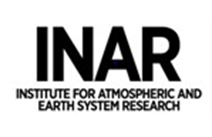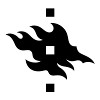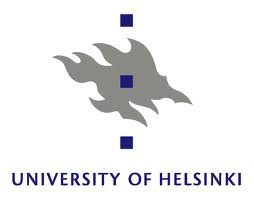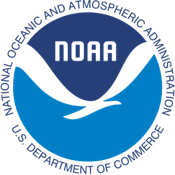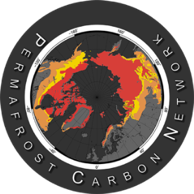Mon 6th Feb
Joint bus transfer from Helsinki railway station to Hyytiälä SMEAR-II via Kumpula campus and Helsinki-Vantaa airport
12:00 Helsinki railway station (the bus will be waiting at the Railway square (in Finnish “Rautatientori”) on the site with touristic buses (not local line buses!) opposite ”Сasino”
12:20 Kumpula campus (the bus will pick up participants from University of Helsinki, Physics Dept building, address: Gustaf Hällströmin katu 2a)
13:00 Helsinki – Vantaa airport (Terminal 2, Charter buses waiting place)
17:00 arrival to Hyytiälä
dinner at the lunch cafeteria
18:00 Welcome to Hyytiälä SMEAR – II station, Timo Vesala, Antti Lauri, Hanna Lappalainen
Introduction of Workshop participants
Introduction to the WS- Agenda and Goals, T.Vesala, S. Starkweather, H.Lappalainen
Hyytiälä Field Station history overview, Antti Lauri
20:00 sauna, evening snack
Tue 7th Feb
07.00-08.30 breakfast
Put up posters in the morning of the day. Poster session on the Tuesday evening at the Old Main Building
SESSION: CHALLENGES OF FLUX MEASUREMENTS IN THE ARCTIC – BOREAL ENVIRONMENTS
Session chairs: Zilitinkevich & Heimann
08.30 New knowledge of physical processes controlling the surface fluxes, Sergej S. Zilitinkevich, Finnish Meteorological Institute, Finland (Plenary)
08.50 Modelling stably stratified planetary boundary layer (PBL): why prior models face so many difficulties, Evgeny Kadantsev, Finnish Meteorological Institute, Finland
09:10 Challenges and results in year-round flux measurements at sites in high-arctic Siberia (Tiksi) and subarctic Scandinavia (Kaamanen), Tuomas Laurila, Finnish Meteorological Institute, Finland
09.30 Integrated studies of carbon fluxes in European Russian taiga, Andrey Varlagin, A.N. Severtsov Institute of Ecology and Evolution, Russia
09.45 Observationally Closing the Arctic Atmosphere-Surface Energy Budget, Taneil Uttal, NOAA, USA
10:00 break
10:20 Overview of flux measurement challenges, Mathias Goeckede, Max-Planck-Institute for Biogeochemistry, Jena, Germany (Plenary)
10.40 The quantification and monitoring of pan-Arctic greenhouse gas budgets, Martin Heimann, Max-Planck-Institute for Biogeochemistry, Jena, Germany (Plenary)
SESSION: SMEAR-II FLAGSHIPSTATION
Session chairs: Vesala & Bäck
11:00 Coherent, coordinated, comprehensive, long-term in situ measurements (SMEAR-II) and Grand Challenges, Markku Kulmala, University of Helsinki, Finland (Plenary)
11:15 BAECC- A field campaign to elucidate the impact of Biogenic Aerosols on Clouds and Climate – First results, Tuukka Petäjä, University of Helsinki, Finland
11.30 LUNCH
12.15 SMEAR-II station site visit in groups
14:00 COFFEE
14:20 GROUP PHOTO
SESSION: PROCESS-BASED UNDERSTANDING
Session chairs: Goeckede & Bruhwiler
14:30 Carbonyl sulfide as a proxy for gross primary productivity”, Timo Vesala, University of Helsinki, Finland
14:45 Soil as a source or sink of greenhouse gases in boreal and sub-arctic areas, Jukka Pumpanen University of Eastern Finland, Finland
15:00 Seasonal and Latitudinal Variations of Surface Fluxes at Arctic Terrestrial Sites, Andrey Grachev, University of Colorado, CIRES/NOAA ESRL, Boulder, CO, USA
15:15 Land ecosystems and the processes involved in non-GHG, climate relevant gas fluxes, Jaana Bäck, University of Helsinki, Finland
15:30 Growing season GHG fluxes from wetlands and meadows of Tomsk Region,West Siberia , Mikhail Arshinov, Institute of Atmospheric Optics, Siberian Branch of Russian Academy of Sciences (IAO SB RAS), Russia
15:45 Arctic CH4 Emissions over Recent Decades: What Have we Learned from Global Atmospheric Network Observations?, Lori Bruhwiler, NOAA, USA
16:00 Trace gas flux monitoring in Greenland and Svalbard, Frans-Jan Parmentier, Lund Universiy, Sweden
16:15 Ecosystem Respiration Synthesis, Susan Natali, Woods Hole Research Center, USA
16:30 Long-term monitoring of permafrost at special key-sites in the West Siberia. Natural and technogenic risks in cryolithozone, Dmitry Drozdov, Tyumen State University; Earth Cryosphere Institute SB RAS, Russia
16:45 Land surface temperature for urban heat island studies in the Arctic, Victoria Miles NERSC, Norway
17:00 dinner at the lunch cafeteria
18:00 POSTER SESSION (evening snacks)
20:00 sauna, evening snacks continue
Wed 8th Feb
07:00-8:30 breakfast
SESSION: CONNECTING CRYOSPHERE - ATMOSPHERE CHANGES TO THE ECONOMY-ENERGY-ENVIRONMENT ANALYSIS
Session chairs: Sörensen & Riipinen
08:30 Earth System modeling frameworks for high latitudes, Risto Makkonen, University of Helsinki, Finland
08:45 GAINS model, mitigation of air pollution & GHGs, Pauli Paasonen, University of Helsinki, Finland
09:00 A sharp increase in CO2 concentration in West Siberia: anthropogenic impact or response of Siberian ecosystems to a changing climate?, Boris Belan, Institute of Atmospheric Optics, Siberian Branch of Russian Academy of Sciences, (IAO SB RAS), Russia
09:15 The Year of the Environment (2017) in Russia: objectives and interests, Veli-Pekka Tynkkynen, Aleksanteri Institute, Finland
09:30 Environmental risk assessment & mitigation strategy basing on forward /inverse modelling, Aleksander Mahura, Dannish Meteorological Institute, Denmark
09:45 SLCF emissions in high-latitude Eurasia: Constraints from observations in the Arctic and Russia, Nikos Evangeliou, Norwegian Institute for Air Research, Norway
10:00 short break
COASTAL PERMAFROST REGIONS & THE ARCTIC OCEAN
Session chairs: Laurila & Esau
10:15 Activities at Stockholm University relevant for CRUCIAL, Ilona Riipinen, Unviersity of Stockholm, Sweden
10:30 Air-surface fluxes over ice covered waters, Lise-Lotte Sörensen, Arhus University, Arctic Research Centre, Denmark
10:45 Scientific station "Ice Base "Cape Baranova" - polar environment complex studies, Aleksander Makshtas, Arctic and antarctic research institute, Russia
11:00 Linkages between the changing Arctic Ocean and large-scale atmospheric dynamic, Timo Vihma, Finnish Meteorological Institute, Finland
11:15 Satellite monitoring and modelling of the Barents - Kara Sea region, Jari Haapala, Finnish Meteorological Institute, Finland
11.30 LUNCH
12:15 Metadata for a graphical representation of cryological research, Viktor Gennadinik, Tyumen University, Russia
12:30 Urban climate studies in Arctic: experimental microclimate research in polar cities
Pavel Konstantinov, Mikhail Varentsov and Alexander Baklanov, Moscow State University, Russia
12:45 A long-term observations of the permafrost temperature in the Arctic coastal zone (on example of Pechora and Kara Seas), Osip Kokin, Moscow State University, Russia
13:00 Bjerknes Compensation Mechanism Prospects for multi-decadal climate prediction in northern high latitudes, Igor Esau, NERSC, Norway
13:15 Three years of meteorological and surface heat balance observations at "Ice Base Cape Baranova, Vasilii Kustov, Arctic and antarctic research institute, Russia
13:30 Break-out sessions on
-
Challenges of Flux Measurements in the Arctic, Chair Starkweather
place: auditorium, Institute building
-
Process-Based Understanding & modelling frameworks, Chairs Makkonen & Paasonen
place: seminar room, A-building
-
Arctic Ocean, coastal regions, observation systems, Chair Vihma
place: computer room, Institute building
14:00 Coffee break
14:30 Break-out sessions continue
15:30 Arctic Flux / CRUCIAL - Parallel sessions
-
Arctic Flux: chair Starkweather
Breakout session on Top-down vs. Bottom up approaches and other walk-in topics,
CRUCIAL: chair Kulmala
-
roadmap discussion; to identify methods on how to connect the cryosphere-atmosphere changes to the economy-energy-environment analysis (e.g. forest management) and the feedbacks between them
-
Mobility Plan, discussion on student exchange and short term visits between CRUCIAL partners, chair A.Lauri
-
18:00 DINNER at the Old Main Building / Boreal dinner in the forest
Thu 9th Feb
7:00-8:30 Breakfast
Session chairs: Kulmala & Makshtas
08.30 Summary of Break-out sessions and Parallel sessions
09:30 Joint Discussion - Concluding remarks
-
U.S Sustainable Arctic Observation Network (SAON) Office, Sandy Starkweather, NOAA, USA
-
Pan-Eurasian Experiment, CRUCIAL, U-Arctic, Arctic-Boreal HUB, Hanna Lappalainen, Univ.Helsinki, Finland
-
Closing of the WS
10:45 lunch
11.30 Bus transfer from Hyytiälä to Helsinki
Estimated arriving time to Helsinki airport - 15:00 and to Central Railway station - 15:45



